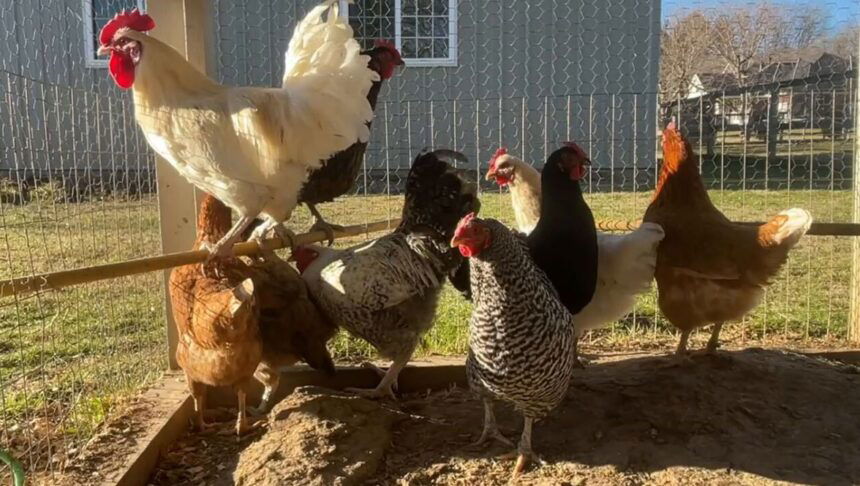Families facing huge rent hikes as farmers fight to keep local agriculture alive

For the last four years
By Hannah Mackenzie
Click here for updates on this story
ASHEVILLE, North Carolina (WLOS) — High demand and lower supply mean the cost of chicken eggs will continue to rise.
According to the Bureau of Labor, the price of one dozen large grade-A eggs has increased alby most 59.9% from December 2021.
The latest numbers from the Federal Reserve report the average price of a carton is $4.25, but some organic, pasture-raised eggs are selling for upward of $8.
The surging prices are prompting some to skip the middleman.
For the last four years, Brian Howard and his wife, Erica, have raised their own flock, which now consists of two roosters and 19 hens.
“After a couple of years, you stop counting,” laughed Howard. “You don’t name them anymore either!”
The Howards’ hobby has turned into side hustle. The couple sells eggs at the Mills River farmer’s market.
“In the summertime, we get 12-15 [eggs] a day,” Howard said.
This year could be a lot more lucrative for the couple. According to the USDA, avian flu outbreaks have led to lower supplies of chicken eggs. The Howards say they’ll be increasing their prices at the next farmer’s market. Howard predicts others will jump on the bandwagon, and in turn, the price of live chickens will go up.
“A chicken that’s egg-bearing age, which is usually six to nine months or so, probably will be upwards of $25 now,” Howard said. “I can’t confirm it, but I guarantee this spring that they’re going to be a lot more expensive than they used to be.”
Tractor Supply sells chickens seasonally. An employee at the Hendersonville store said they will get chicks by the end of February. He wasn’t sure about pricing but said there has been a lot of customer interest.
For Howard, who paid $10-$15 per chicken, he’s investing in an incubator to up his hatching game.
“It’s some work but it’s really not that hard,” Howard said.
The biggest expense, besides the coop, Howard said is food. Howard said he shells out about $30/monthly – a drop in the bucket, compared to breaking the budget!
With all the new interest in owning chickens, the CDC is warning people that backyard coops can carry health risks – including Salmonella.
Please note: This content carries a strict local market embargo. If you share the same market as the contributor of this article, you may not use it on any platform.